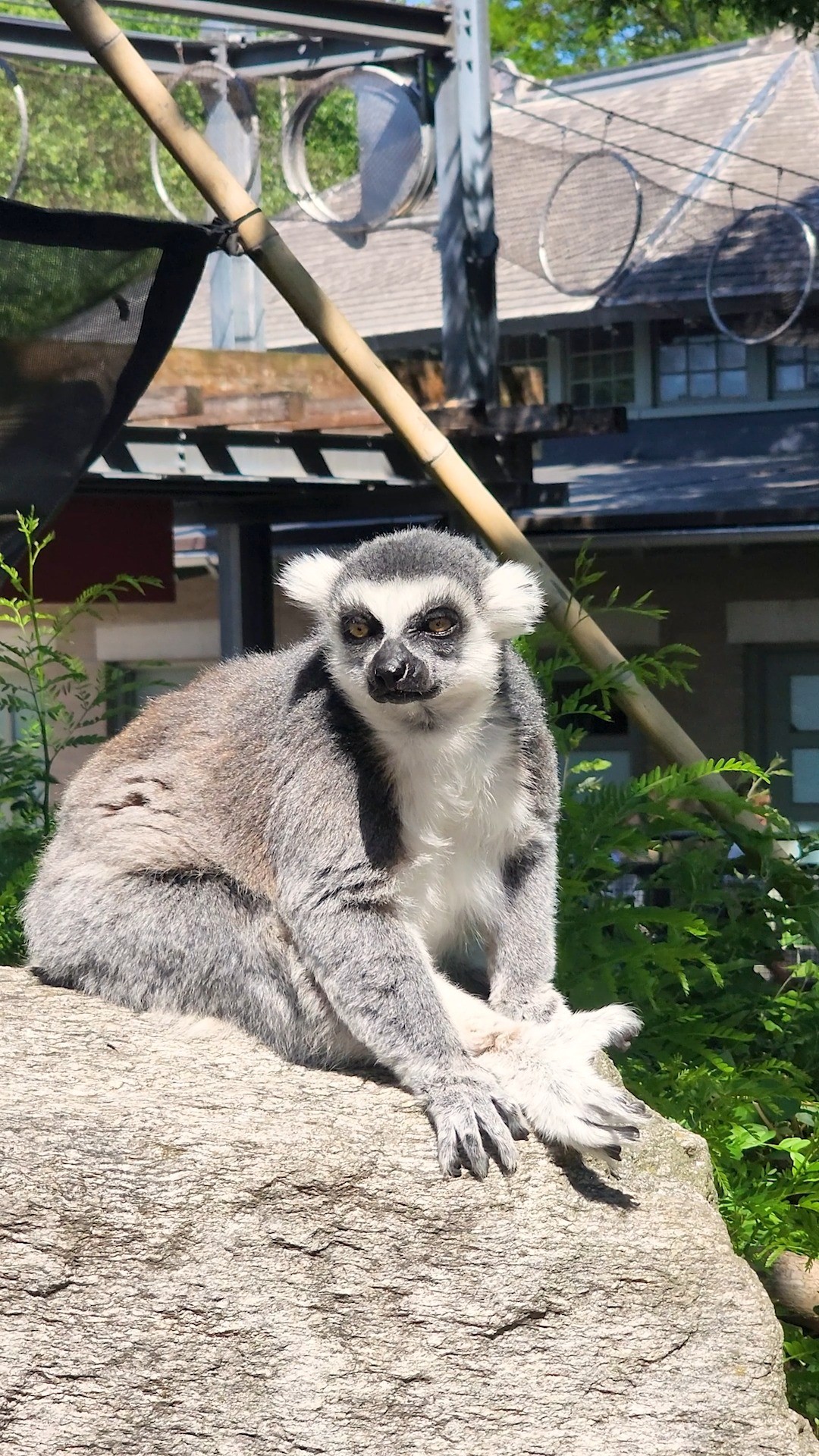- Explore the features and importance of Lemur Island as a walk-through experience that enhances visitor engagement through interactive learning.
- Understand the biological and behavioral characteristics of ring-tailed lemurs, highlighting their unique adaptations and social structures.
- Examine the role of zoos in wildlife conservation and the specific efforts surrounding lemur conservation.
- Discuss the integration of educational initiatives with conservation practices to raise awareness about lemurs and their habitats.
- Highlight the benefits of involving the public in conservation through accessible experiences like Lemur Island.
Lemur Island, located near the PECO Primate Reserve, offers a unique opportunity to interact with a family of ring-tailed lemurs within a walk-through experience open daily, weather permitting. This initiative is a key attraction included in regular admission, providing not only entertainment but also deep learning about these remarkable primates.
The design of Lemur Island allows visitors to observe lemurs in an environment that closely resembles their natural habitat. This setup, which encourages free movement and natural interaction among lemurs, enhances visitor engagement and fosters a better understanding of these creatures’ daily lives. By allowing guests to step into the lemurs’ world, this experience fosters a profound connection, encouraging empathy and a commitment to conservation.
Ring-tailed lemurs, native to Madagascar, are known for their distinctive black and white striped tails. They display a variety of fascinating behaviors and adaptations that help them thrive. Social creatures, they live in groups called troops, typically led by a dominant female. This structured social hierarchy is crucial for maintaining group cohesion and resource allocation. Lemurs communicate through vocalizations, scent marking, and body language, which visitors to Lemur Island can observe firsthand.
These primates have several adaptations for survival. Their keen sense of smell is vital for communication and locating food, while their long limbs and flexible joints make them adept climbers. Additionally, their diet is varied, consisting of fruits, leaves, and occasionally insects, showcasing their adaptability to different environmental conditions.
The establishment of Lemur Island highlights the critical role of zoos in wildlife conservation. Zoos today are not mere menageries but are pivotal in preserving endangered species and educating the public. The ring-tailed lemur is currently classified as endangered due to habitat loss and hunting. Places like Lemur Island play an essential part in conservation efforts by maintaining genetically diverse populations and supporting breeding programs that can bolster wild populations.
Educational initiatives are integral to the success of conservation. By combining engaging experiences with informative content, visitors leave with a greater appreciation for wildlife and their conservation needs. Lemur Island offers educational programs that explain the challenges lemurs face in the wild, such as deforestation and illegal pet trade, and the importance of preserving their natural habitats.
Involving the public in conservation efforts through platforms like Lemur Island has substantial benefits. It transforms visitors into informed advocates who can spread awareness and contribute to preserving biodiversity. This hands-on approach to learning encourages individuals to support initiatives that aid in habitat conservation and sustainable practices.
The blending of visitor experiences with meaningful conservation action is crucial. Lemur Island stands as a model, demonstrating how interactive learning can enhance conservation efforts while fostering public interest and involvement. The presence of lemurs in a zoo setting ensures that these fascinating creatures and their stories reach a broader audience, inspiring tangible change in conservation attitudes.
Ultimately, Lemur Island is more than just an exhibit; it is a dynamic platform for education and conservation that leverages the curiosity and enthusiasm of its visitors to drive positive outcomes for the ring-tailed lemur and their wild counterparts. This approach aligns zoo experiences with broader environmental stewardship goals, reinforcing the importance of preserving wildlife for future generations.
*****
Source Description
Welcome to Lemur Island 🌞🏝️
Visit and share a space with our family of ring-tailed lemurs with this walk-through experience right outside of PECO Primate Reserve. Lemur Island is open daily (weather permitting) and included in regular admission!


